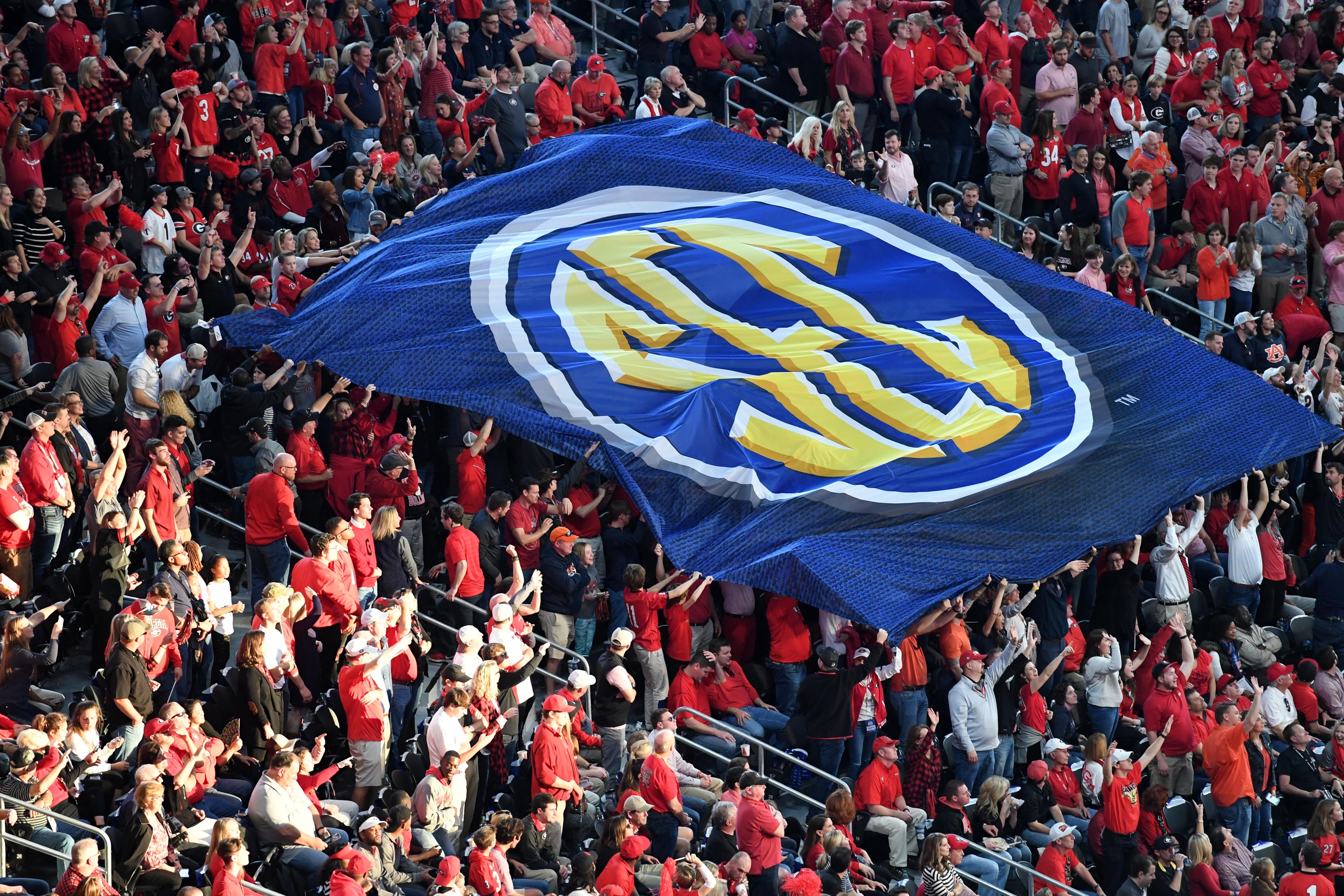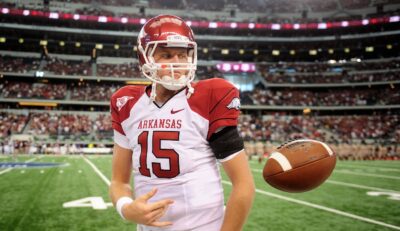
It looks like the SEC will go another year prohibiting alcohol sales in general seating areas, but why?
The SEC needs to sit back, relax and crack open a cold one.
Literally.
The conference is apparently talking about the idea of allowing alcohol sales stadium-wide, but as we found out from the SEC meetings, that’s all it is. Talk.
“That’s not a topic that exists only when the newspaper articles are written two weeks before Destin every year,” SEC commissioner Greg Sankey said via The Knoxville News. “But that hasn’t produced change at this point among our membership.”
In other words, it looks like the SEC will keep its conference-wide policy of only allowing alcohol sales in premium-level seating and preventing them in all general seating areas.
As Sankey said, the issue of allowing general seating alcohol sales was actually talked about well before then. In fact, Alabama athletic director Greg Byrne said on WJOX a couple months ago that he knew there was a push from SEC schools to at least get the conference to get rid of the autonomy nature of the rule. As in, let each SEC school decide for itself if it wants alcohol sold in general seating areas.
But the SEC, for whatever reason, is not about that life. Instead, it’s trying to hold on to the belief that it mustn’t jeopardize the in-game experience to make a few bucks.
Here’s the thing about that. I agree that the college football atmosphere in general is much better than the NFL, where you’re lucky if a fight doesn’t break out in your section.
Having said that, the reason alcohol will be sold stadium-wide in 52 of 129 FBS schools is all an effort to improve the in-game experience. The at-home game experience has never been better. More games than ever are available on cable packages, and because of the variety of streaming services, fans can watch college football all day from the comfort of their own home (something I do from 9 a.m. to 2 a.m. on a given Saturday). A stocked fridge and a bathroom a few steps away are also part of that.

The attendance numbers reflect that. No conference suffered a larger average home attendance decrease from 2016 to 2017 than the SEC. Having 2,433 fewer fans per SEC game might not sound like much — especially considering the SEC still leads the nation in average attendance — but that’s significant over the course of a season.
Sooner or later, the SEC will have to address a way to compensate for that decreasing number. Alcohol sales could be a reasonable way to do that.
Even a school that would have been at the bottom of the SEC average home attendance like Purdue reportedly made $400,000 in gross revenue from alcohol sales. Ohio State reportedly made a cool $1.35 million. That’s not bad for essentially adding something to the concession menu.
I understand the hesitancy from the SEC and anyone else who doesn’t want to go down that road yet (the SEC is still the only Power 5 conference with a conference-wide ban). The risk of increased in-stadium incidents for some alcohol revenue might seem like it has a “sold your soul to the devil” vibe.
But as Byrne brought up a couple months ago, schools like West Virginia and Texas did studies and actually found that their in-game incidents went down because binge drinking before games decreased. Imagine that. Fans apparently don’t try and capture a 4-quarter buzz at tailgates when they know they can have a beer inside.
That’s the other thing. Does the SEC really feel like fans are entering games sober and that’s why their in-game experience is so strong?
Question: "If the SEC legalized the sale of beer in general seating areas, what would be the reaction to #LSU fans who are now able to buy a beer in Tiger Stadium?"
Ed Orgeron: "In Louisiana, they probably already had a couple before they got in there."
— Ross Dellenger (@RossDellenger) May 29, 2018
Everywhere, they probably had a couple before they got in there. Dry campus, wet campus, you name it. College football fans find ways to consume alcohol — some responsibly and some not so much — no matter where they are.
If the idea of drinking alcohol while watching college athletes is so unholy for the SEC, why even allow for alcohol to be sold in premium levels? Maybe that’s in an effort to incentivize premium seating. In other words, it’s still about money. It’s an easy thing for the conference to spin by saying it worries how the in-game conference will be impacted.
With a larger sample size across the country, we could get more evidence that the in-game incidents are down following the implementation of alcohol sales. Perhaps that’ll finally force the SEC to at least allow the athletic directors to vote on abolishing the autonomic nature of the rule.
But man, it’s hard to see that happening anytime soon.
“It hasn’t happened so far,” Sankey told The Knoxville News. “Perhaps every day we’re closer, but that doesn’t mean we are.”
What a buzzkill.
Connor O'Gara is the senior national columnist for Saturday Down South. He's a member of the Football Writers Association of America. After spending his entire life living in B1G country, he moved to the South in 2015.







